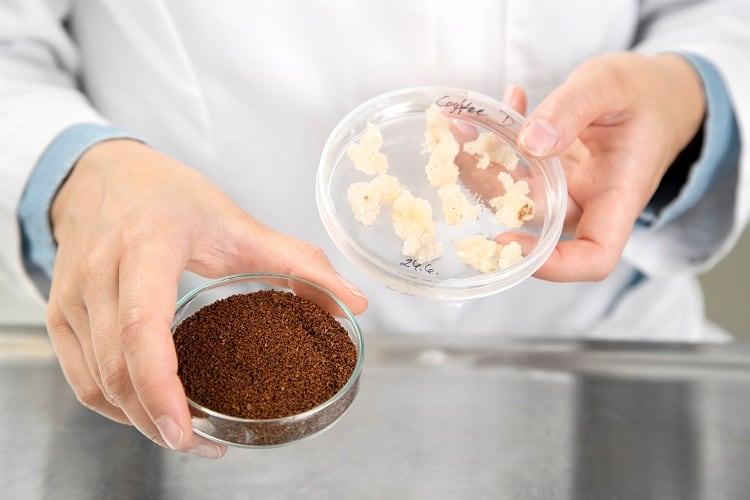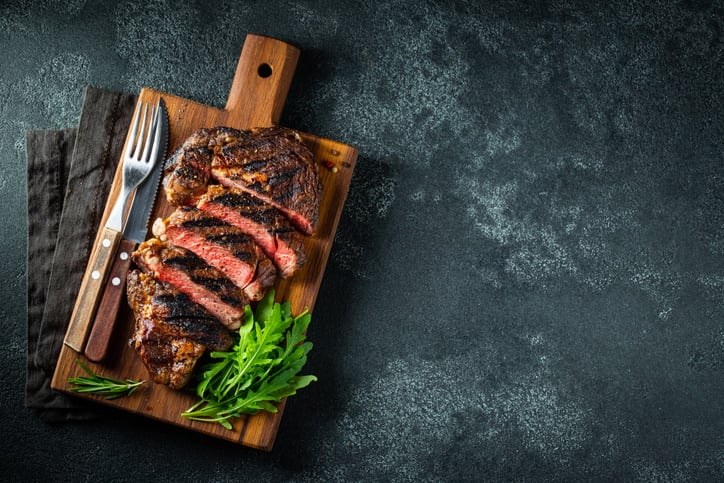Both Aleph and Mosa have developed technology that allows them to produce slaughter-free meat grown from animal cells.
Mosa Meat’s founder, Dr Mark Post of Maastricht University, is responsible for producing the first burger grown from cultured animal cells back in 2013. Last year, the company closed a US$55m investment round and opened a new pilot plant facility in Maastricht, the Netherlands. This is where Mosa Meat plans to produce its first products for market in 2022.
Likewise, Israeli-based Aleph Farms is targeting a 2022 launch for its first cultured meat products. The company, the first to create cellular minute and rib-eye steaks, closed a $105m funding round earlier this year, which was led by consumer-focused private equity firm L Catteron and DisruptAD. It saw participation from Skyviews Life sciences and a consortium of conventional meat companies, including Thai Union, BRF and CJ CheilJedang. Existing investors VisVires New Protein, Strauss Group, Cargill, Peregrine Ventures and CPT Capital also took part.
The scale of DiCaprio’s investment was not disclosed. The actor will also serve as an advisor to both companies.
"As a committed environmentalist, we welcome Leonardo DiCaprio to our advisory board and family of top tier investors. Our team is committed to improving the sustainability of our global food systems and we're thrilled to have Leo share in our vision,” commented Didier Toubia, Co-Founder and CEO of Aleph Farms.
"Leonardo DiCaprio's work to bring about positive change is closely aligned with our mission at Mosa Meat. We are thrilled to bring him on board as advisor and investor and work together to feed current and future generations sustainably,” said Maarten Bosch, CEO of Mosa Meat.
Transforming the food system
DiCaprio, meanwhile, said one of the ‘most impactful’ ways to combat the climate crisis is to ‘transform our food system’.
“Mosa Meat and Aleph Farms offer new ways to satisfy the world's demand for beef, while solving some of the most pressing issues of current industrial beef production. I'm very pleased to join them as an advisor and investor, as they prepare to introduce cultivated beef to consumers," he commented.
The FAO predicts that meat consumption will grow by between 40% and 70% by 2050. According to proponents, cultivated meat offers a solution that can ‘greatly reduce’ negative impacts of industrial beef production, without requiring behavioural change at a consumption level.
According to an independent life cycle analysis, cultivated beef production could reduce climate impact by 92%, air pollution by 93%, use 95% less land and 78% less water when compared to conventional beef production.
“Cultivated beef production offers the opportunity to use the spare land for re-wilding habitats, which would naturally reduce emissions or for producing more food for people. Moreover, the automated process through which cultivated meat is produced, and the sterile environment of its manufacturing, will eliminate the use of antibiotics and greatly reduce the risk for pathogens, contaminants, and foodborne illnesses associated with concentrated and intensive animal farming,” the companies said in a joint statement.
McKinsey forecasts that the cultivated meat sector could reach a value of US$25bn by 2030.
Nevertheless, some barriers to scale remain. While rapid scientific advances and technological developments make today an exciting time for cellular agriculture, there are some major challenges to overcome before a product reaches the mass market.
One such issue is cost – and in particular the expense of growth media and difficulty producing at scale – that push up the expense of cellular meat production. Cultured meat companies are investing heavily in R&D to alleviate this cost – but it could well remain a sticking point for years to come.
Regulatory approval could represent another sticking point. To date, only Singapore has green-lighted the technology. No cell-based meat product is yet to apply for a Novel Foods Application in Europe. But supporters of this well-invested sector are bullish on its prospects. Eat Just, the US company whose cultivated chicken ingredient has been approved for sale in Singapore, reckons its product will get regulatory approval in Europe within two years.
Aleph Farms Head of Sustainability, Lee Recht, will be joining FoodNavigator’s free broadcast event, Climate Smart Food, next week. We'll be discussing the challenges and opportunities that food and ag tech innovation can unlock to shift to a more sustainable food system on day four of the event.
With the food system contributing around one-quarter of greenhouse gas emissions today, it is clear that business-as-usual is not an option. So what needs to change if we are to transition towards truly sustainable nutrition? Join us to find out.
To register for free, click HERE, or to view details of our full programme, click HERE.





